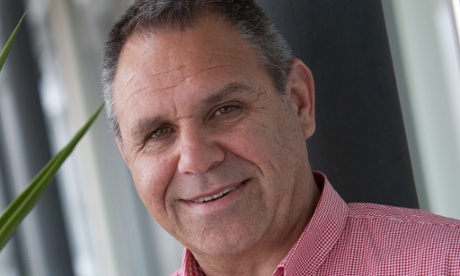Series: IndigenousX
Medical researcher James ward takes over the @IndigenousX account this week. Get yourself and your mob informed about HIV

Tell us about who you are
My name is James Ward. I am a Pitjantjatjaraand Nurrunga man from central and south Australia, with connections to mobs in Kaltukatjara, Ntaria, Point Pearce and Adelaide. I currently live in Alice Springs but from next week will be relocating to Kuarna country in Adelaide. From next week I will be based at the South Australian health and medical research institute, specialising in infectious diseases. I’ll be working on sexually transmissible infections and blood borne viruses like HIV and viral hepatitis but spanning more broadly into prisoner health and vaccine preventable diseases.
What do you plan to focus on during your week as host of @IndigenousX?
My focus while hosting IndigenousX will be on raising HIV and related conditions awareness in the Aboriginal and Torres Strait Islander community. In the early days of HIV when it first hit Australia 30 years ago, we were told a catastrophe would occur among our people. Despite early warnings, this hasn’t eventuated. That should be celebrated but with some considered caution!
For us during the last five years a higher rate of HIV diagnosis has occurred among First Peoples of this land compared to non-Indigenous people, with higher rates of diagnosis occurring among our women and among our people who inject drugs – as well as elevated rates among men who have sex with men.
We need to turn this around to prevent a major escalation in HIV among our population. This has happened in Canada among First Nations peoples, and there is no reason why it can’t happen here. Harnessing the community, getting people to be informed and educated about HIV and getting the yarn going again is a successful plank of prevention. Unfortunately in recent years this has fallen off the agenda. IndigenousX provides an opportunity to raise awareness in our communities about HIV in the lead up to the first ever HIV Awareness Week being held from the 28th November to the 5th December. Look out for events, new stories social media and get yourself and your mob informed and raise awareness in your community about HIV.
What issues are you most passionate about and why?
The issues I care most about are obviously related to my work: this area of health predominantly affects young people in our communities, they are largely preventable conditions and its unacceptable that in some of our communities STI rates are 30 times that of non Indigenous communities.
But I also care about the widening gap between the “haves and have-nots” in our society; no where more evident than in a place like Alice Springs, with surrounding remote communities. Our environment and the massive changes that are required of it because of changing climate matters to me a lot too. Finally I am concerned about the micro and macro assaults that First Peoples of this country are expected take on a daily basis both as a collective and as individuals through ignorance, racism, stereotyping or tokenism.
Who are your role models, and why?
I have a few role models, both black and white. Most importantly, my mother’s and grandmother’s generations and what they’ve endured and fought for are the first role models in my life. There are some strong silent leaders in our community: I admire people like Sandra Bailey, Sandra Eades, Donna Ah-Chee and a few louder leaders like Gracelyn Smallwood, Neville Fazulla – my cousin who left us for the spirit world almost three years to this day – and Rodney Junga-Williams. All who have made immense contributions to Australia as a whole.
What are your hopes for the future?
My hopes for the future are for us to really decrease the chasm of disadvantage that exists between First Peoples of this country and non-Indigenous peoples. Not just in health, but in all of the other traditional measures of a good society. That means a society free of racism and prejudice, that makes fewer assaults on the emotional intellect of our people.
